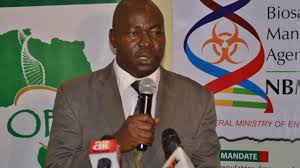By Asma’u Ahmad
The National Biosafety Management Agency (NBMA) says it is committed to safeguarding the health of Nigerians in efforts to adopt modern biotechnology and use Genetically Modified Organisms (GMOs).
Director-General of NBMA, Dr. Rufus Ebegba gave the assurance in an interview with newsmen on Tuesday in Abuja.
He said that the agency was established to provide a regulatory framework to adequately protect human health as well as the environment from potential adverse effects of modern biotechnology and GMOs.
“Nigeria is endowed with a rich biodiversity and the Federal Government does not want the advancement in modern biotechnology to adversely impact on human health and the environment.
“It is on this premise that Nigeria signed and ratified the Cartegena Protocol on Biosafety as a commitment to global biosafety management,” he said.
According to Ebegba, modern biotechnology can be used to tackle global and national challenges in the areas of human health, agriculture, environment, industry, poverty and unemployment.
“The application of modern technology under a legal framework will address some of the global and national challenges. Our responsibility is not to stop GMOs in Nigeria but to ensure that its adoption is safe and does not pose any adverse effect to humans and the environment, in accordance with national biosafety management goals.
“The world is being driven by science and technology, and Nigeria cannot shy away from the deployment of safe science and technology to solve the problems affecting the nation,’’ he said.
Dr. Ebegba, therefore, called on institutions that would engage in modern biotechnology practice in Nigeria to seek accreditation from NBMA.
“The agency has the capacity to give Nigeria the desired holistic biosafety in a transparent manner, so that the nation can benefit from modern biotechnology without compromising the safety of the environment and the citizens’ health,” he said.
The NBMA chief said that the essence of technology was to enhance the well-being of all mankind, adding, however, that advancement in technology could have some adverse impacts.
“Modern biotechnology is not an exception in this regard. It is in this context that biosafety has become a means of addressing potential adverse impacts of modern technology and GMOs. Biosafety addresses these impacts both in the conservation and sustainable use of biodiversity, taking into account the potential risks to human health,” Dr. Ebegba added.





